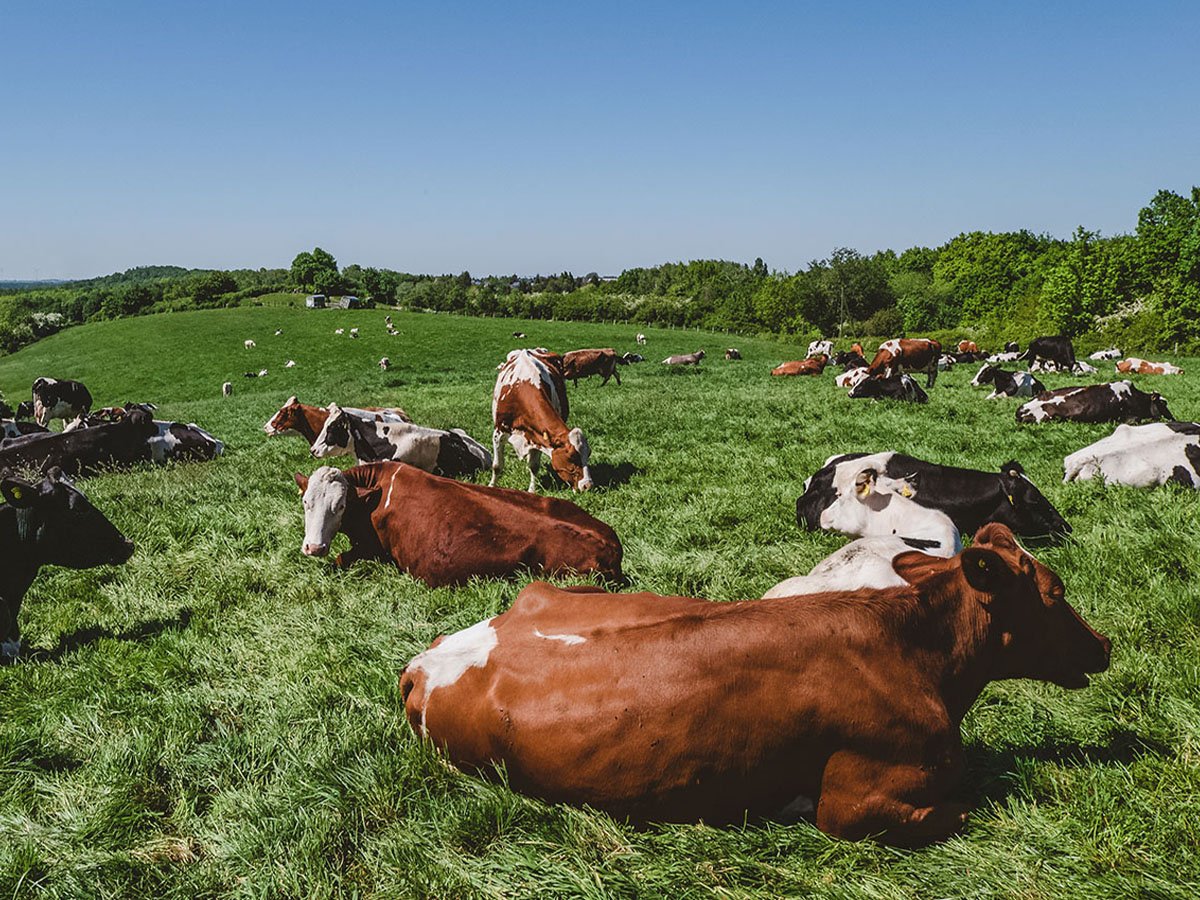Introduction: Not All Meat Is Created Equal
As conversations around health, sustainability, and food ethics intensify, a critical truth has come to light: where your meat comes from—and how it’s raised—matters. For decades, meat was categorized simply by cut and price. But today, discerning consumers are asking deeper questions:
-
Was this animal raised on grass or grain?
-
Was it given hormones or antibiotics?
-
Was it treated humanely?
-
Does that impact the meat I eat?
The answer from modern science is a resounding yes.
At Soba Renaissance, our philosophy is grounded in science-backed farming raising animals the way nature intended, with full transparency and respect. And the results? Meat that is not only ethically sourced but nutritionally superior.
Let’s explore what science says about grass-fed and ethically raised meats, and why your body, and your conscience, deserve better than factory-farmed alternatives.
1. Grass-Fed vs. Grain-Fed: What’s the Difference?
The majority of meat in supermarkets today comes from animals raised in concentrated animal feeding operations (CAFOs) and fattened on a diet of grains like corn and soy. Grass-fed animals, on the other hand, are allowed to graze freely on natural forage, often throughout their entire lives.
This seemingly simple difference in diet makes a huge nutritional impact.
2. The Nutritional Science Behind Grass-Fed Meats
Studies consistently show that grass-fed meat offers key health advantages over its grain-fed counterpart. These include:
Higher Omega-3 Fatty Acids
Grass-fed meats contain up to five times more omega-3 fatty acids, which are known to:
-
Support brain health
-
Reduce inflammation
-
Improve heart function
-
Balance cholesterol levels
Better Omega-6 to Omega-3 Ratio
The modern Western diet is heavily skewed toward omega-6 fats, contributing to chronic inflammation. Grass-fed meat restores balance, helping to fight cardiovascular and autoimmune diseases.
More Conjugated Linoleic Acid (CLA)
CLA is a fatty acid linked to:
-
Reduced cancer risk
-
Improved metabolism
-
Decreased body fat
Grass-fed beef and lamb contain significantly higher CLA concentrations.
Increased Vitamin Content
Grass-fed meat is naturally richer in:
-
Vitamin E (an antioxidant)
-
Beta-carotene (precursor to vitamin A)
-
B vitamins (essential for energy and brain function)
These nutrients decline in grain-fed meat due to the absence of plant diversity in feed.
3. Ethical Farming = Healthier Meat
Beyond feed, the environment in which animals are raised plays a major role in meat quality—scientifically and morally.
Animals subjected to stress, crowding, poor hygiene, and routine antibiotics show:
-
Higher cortisol levels, which degrade meat texture and flavor
-
Greater exposure to antibiotic-resistant bacteria
-
Lower muscle density and nutrient retention
In contrast, animals raised humanely—such as on Soba Renaissance’s self-reliant, ethical farm—live in low-stress conditions, roam freely, and consume a clean, natural diet. This creates meat that is:
-
More tender
-
Safer to consume
-
Free of chemical residues
-
More flavorful and satisfying
4. Clean Meat, Clean Conscience
Ethically raised animals are not treated with growth hormones or non-therapeutic antibiotics, meaning:
-
No synthetic hormones in your food
-
No antibiotic resistance risks
-
No hidden health compromises
This aligns with the “clean food” movement, where consumers demand full transparency and purity in what they eat. For families, athletes, and health-conscious individuals, this matters immensely.
5. Microbiome-Friendly Meats
Recent studies in gut health have revealed that the quality of animal products can impact the human microbiome. Meat raised on diverse, natural pasture contains:
-
More prebiotics and beneficial bacteria
-
Less inflammatory compounds
This promotes:
-
Stronger immunity
-
Improved digestion
-
Better nutrient absorption
At Soba Renaissance, we ensure that both animal and human microbiomes are respected—because gut health is the foundation of total health.
6. Regenerative Impact = Nutrient Density
Grass-fed, pasture-based farming doesn’t just produce better meat—it restores the land. Healthy, living soil leads to:
-
Healthier grasses and forage
-
More minerals and nutrients available to animals
-
Meat enriched with trace minerals like zinc, magnesium, and selenium
It’s a chain reaction: Healthy soil → Healthy animals → Healthy humans.
7. The Ethical Science of Flavor
Believe it or not, the way animals are treated affects how their meat tastes. Chronic stress causes muscle tension and lactic acid buildup, resulting in meat that’s:
-
Tough
-
Dry
-
Lacking depth of flavor
By contrast, grass-fed animals raised with care and calm yield meat that is:
-
Juicier
-
More flavorful
-
Naturally seasoned by diverse forage
This is why chefs and food scientists alike champion ethically raised meats as premium-quality products.
Conclusion: Science Is on the Side of the Grass
If you care about your health, your food’s origin, and the future of farming, the evidence is clear: grass-fed and ethically raised meat is superior—nutritionally, environmentally, and ethically.
At Soba Renaissance, our mission is to honor that science through daily practice. Our animals graze on pasture. They are treated with dignity. We raise them for health, not haste—and we bring their meat to your table with complete transparency.
This isn’t just better meat. It’s a better way.
Let science guide your plate. Choose grass-fed. Choose ethical. Choose Soba Renaissance.


